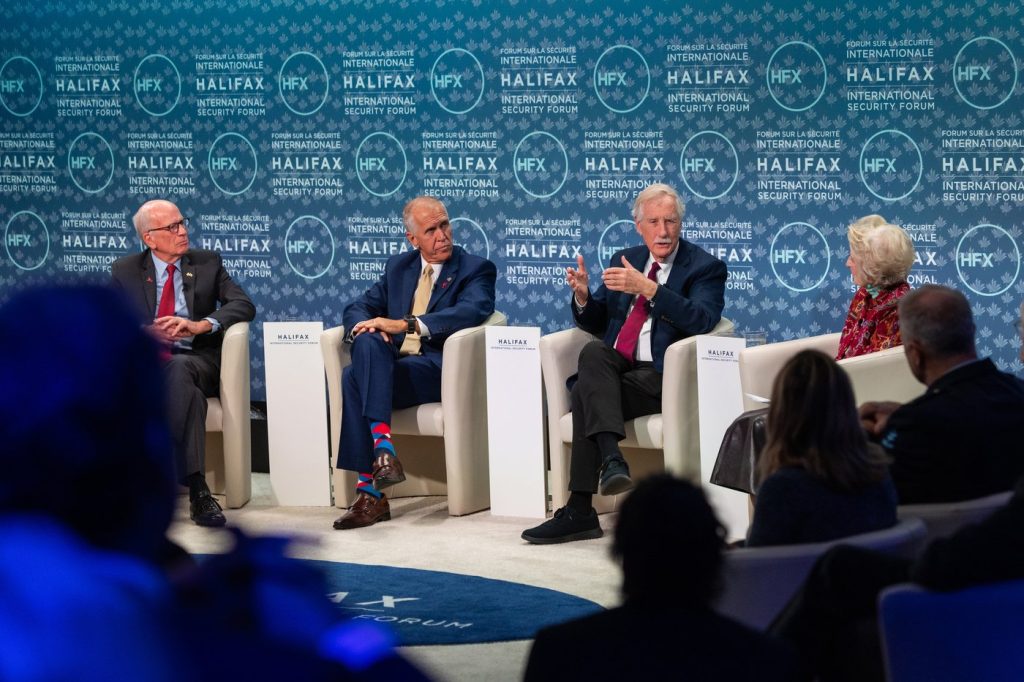VICTORIA – In a significant development for trade across Canada, an agreement has been finalized between the federal government, provinces, and territories that will allow businesses to sell thousands of goods freely across the country. This groundbreaking initiative was announced by Ravi Kahlon, British Columbia’s Minister of Jobs and Economic Growth, in Victoria, although it was officially signed by Canada's trade ministers at a meeting in Yellowknife on Wednesday.
The Canadian Mutual Recognition Agreement, spearheaded and chaired by the B.C. government, is hailed as a vital step towards improving interprovincial trade. Kahlon emphasized the agreement as “the largest red tape reduction in Canada’s history,” noting it as just the beginning of efforts to streamline trade conditions for businesses across the nation.
This agreement is set to take effect next month and will encompass most products, though it notably excludes food, beverages, tobacco, plants, and animals. Kahlon also mentioned that British Columbia is advocating for an expansion of the agreement to include these sectors in the future, recognizing their significance in the trade landscape.
Amid global inflation and the turbulent trade climate stemming from the Trump administration's policies, Kahlon noted an increased urgency for Canada to address interprovincial trade barriers. For consumers, the agreement promises to provide greater choices, competitive pricing, and consistent standards nationwide. Businesses, on the other hand, will benefit from reduced costs and time spent on navigating complex interjurisdictional regulations, thereby enhancing their reach and potential for job creation.
A core principle of the agreement is straightforward: if a product can be legally sold in one province or territory, it can be sold in another without additional rules or approvals. This key provision aims to simplify the trade process significantly, eliminating the need for businesses to comply with thousands of varying requirements across Canada’s 14 jurisdictions.
The Canadian Federation of Independent Business has praised the signing of the agreement, labeling it a landmark advancement that will begin the process of dismantling costly internal trade barriers. They stressed the necessity of subsequently expanding the mutual recognition agreement to encompass services and food products, including alcohol, which continue to face significant trade hurdles.
Bridgitte Anderson, CEO of the Greater Vancouver Board of Trade, voiced her approval during the news conference on Wednesday. She stated that businesses have long been constrained by a convoluted system of rules, making it easier to trade internationally than across provincial lines. The economic impact of internal trade barriers has been well-documented, with estimates suggesting they cost Canada tens of billions of dollars annually.
To facilitate smoother trade operations, the government’s statement highlighted that the agreement will govern essential rules such as product composition and labeling. However, it will not interfere with existing licensing requirements, age restrictions, or the authorization to sell specific products. By reducing duplicative testing, certification, and paperwork, businesses will stand to save considerable time and resources.
The agreement aims to empower small and medium-sized enterprises by providing them with easier access to new markets, which in turn will benefit consumers through greater choice and improved pricing. Economic analyses predict that this mutual recognition framework could potentially elevate Canada’s GDP by up to 7.9 percent, unlocking approximately $200 billion annually and enhancing productivity by streamlining regulatory processes.
Importantly, the mutual recognition agreement maintains each government’s right to impose regulations that protect health, safety, and the environment. Businesses will not need to apply for permission; if a product meets the regulations in one jurisdiction, it can be marketed in others unless explicitly stated otherwise.












